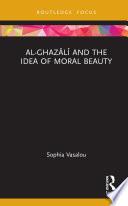
Moral Engines
Exploring the Ethical Drives in Human Life
In the past fifteen years, there has been a virtual explosion of anthropological literature arguing that morality should be considered central to human practice. Out of this explosion new and invigorating conversations have emerged between anthropologists and philosophers. Moral Engines: Exploring the Ethical Drives in Human Life includes essays from some of the foremost voices in the anthropology of morality, offering unique interdisciplinary conversations between anthropologists and philosophers about the moral engines of ethical life, addressing the question: What propels humans to act in light of ethical ideals?
- ISBN 13 : 1785336940
- ISBN 10 : 9781785336942
- Judul : Moral Engines
- Sub Judul : Exploring the Ethical Drives in Human Life
- Pengarang : Cheryl Mattingly, Rasmus Dyring, Maria Louw, Thomas Schwarz Wentzer, Rasmus Dyring, Maria Louw, Thomas Schwarz Wentzer,
- Kategori : Philosophy
- Penerbit : Berghahn Books
- Bahasa : en
- Tahun : 2017
- Halaman : 266
- Google Book : https://play.google.com/store/books/details?id=3QLDDgAAQBAJ&source=gbs_api
-
Ketersediaan :
Moral Engines: Exploring the Ethical Drives in Human Life includes essays from some of the foremost voices in the anthropology of morality, offering unique interdisciplinary conversations between anthropologists and philosophers about the ...









